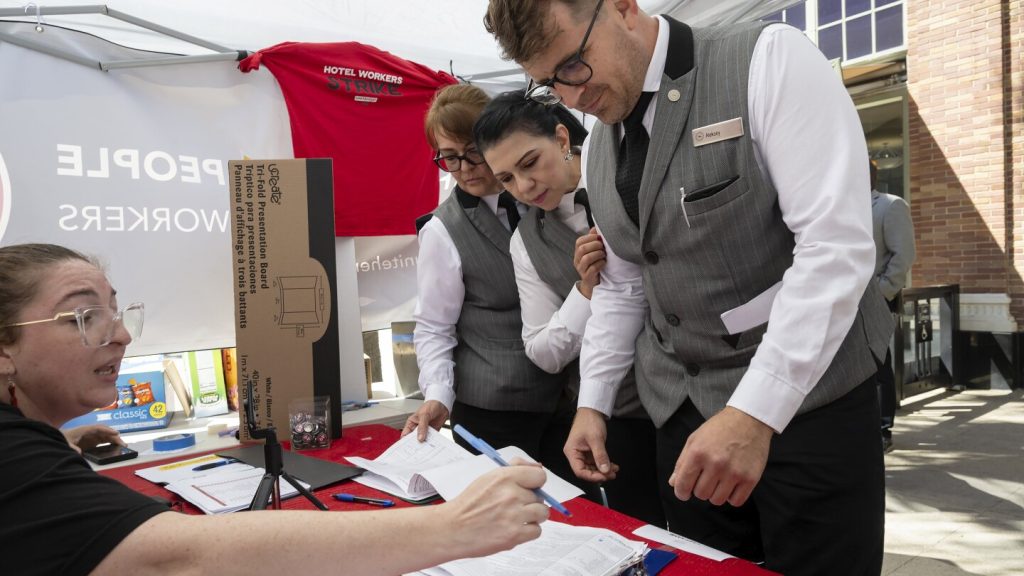California is set to vote in November on Proposition 32, which would raise the state’s minimum wage to $18 per hour by 2026, making it the highest statewide minimum wage in the country. Proponents of the measure argue that it will help low-wage workers support their families in one of the most expensive states to live in. Joe Sanberg, an anti-poverty advocate, believes that the current situation in California, where minimum-wage workers often need government assistance to survive, amounts to “corporate welfare.” The measure would give a raise of $3,000 a year to over 2 million Californians earning minimum wage.
Opponents of the measure, including the California Chamber of Commerce, argue that the increase would be difficult for businesses to implement, especially small employers with thin profit margins. They believe that the cost would be passed on to consumers and could lead to job cuts. Many California cities already have local minimum wages higher than the state’s, with some, such as West Hollywood, already at $19.08 per hour. However, a survey found that some businesses had to lay off employees or reduce their hours as a result of these increases. Fast food workers in California saw a bump to $20 an hour in April, which led to a 3.7% increase in prices but relatively stable employment rates.
University of Pennsylvania professor Ioana Marinescu, who studies the labor market, notes that the impact of increasing the minimum wage on overall employment is close to zero, according to many studies. Despite concerns that low-paying jobs are often filled by students or younger workers, a report from the California Legislative Analyst’s Office found that half of low-wage workers were over 35 and a quarter were over 50. Home health and personal care aides make up the largest low-wage occupation in the state, with over half of low-wage workers being Latino. Small businesses, already struggling with inflation, have mixed feelings about the measure’s potential impact, with some worried about survival.
Workers in California are demanding higher pay and better benefits, with some picketing outside hotels to push for fair wages. Christian Medina, a banquet captain at the Sheraton Grand Hotel in Sacramento, supports the proposition, hoping it will allow workers to better provide for their families. However, some workers believe that even an $18 minimum wage would still not be enough to afford living in areas like Sacramento. Despite their love for their jobs, workers like uniform attendant Carmen Riestra feel that their workload has increased due to job cuts, making their current wages inadequate. The debate over raising the minimum wage in California reflects broader discussions around fair pay, business sustainability, and workers’ rights.


